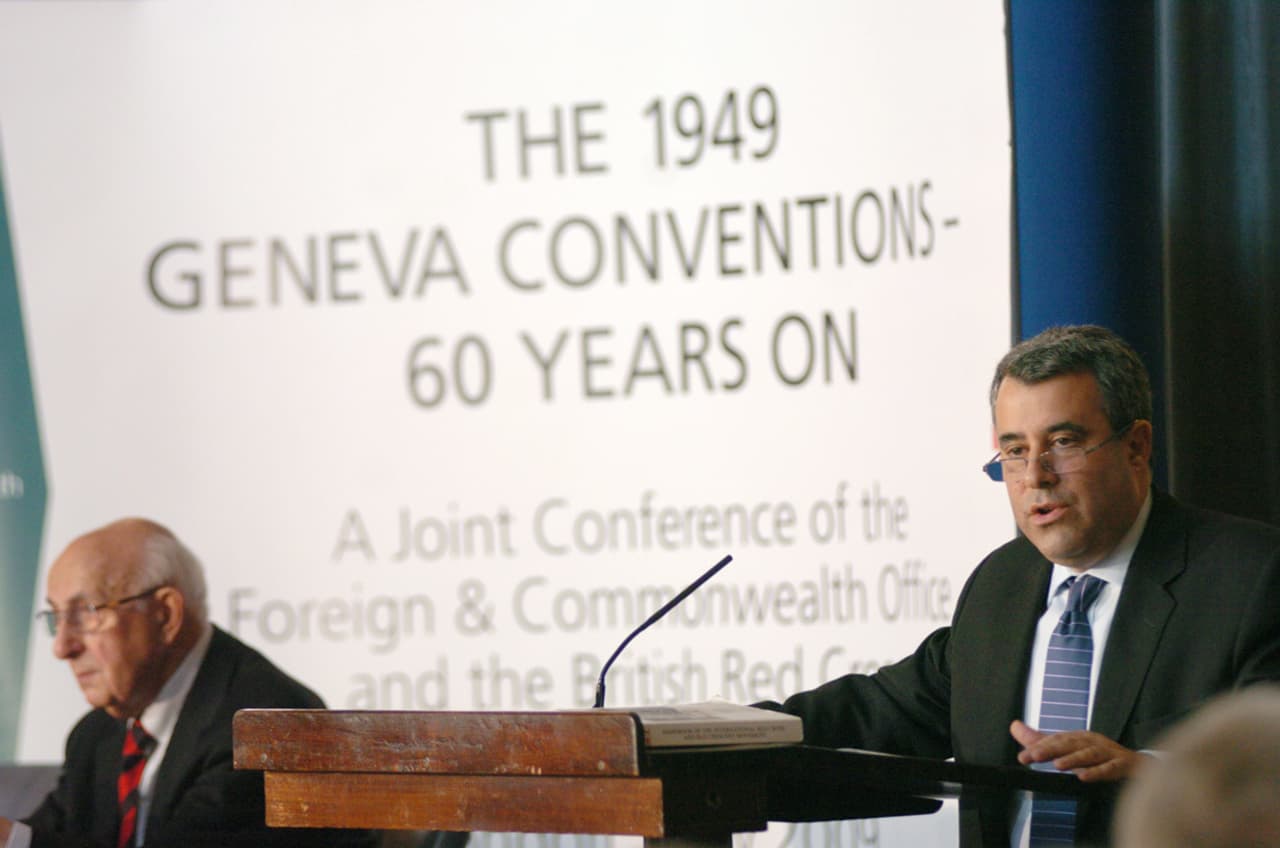
Protection from torture weakened under new plans
The Copenhaged Process could undermine international human rights law
The Geneva Conventions are at risk as Nato countries propose formalising a much criticised system that allows them to transfer prisoners to regimes suspected of using torture.
It is a breach of international law to transfer detainees to the custody of a state where they may face a risk of torture even if a ‘memorandum of understanding’ (MOU) is signed promising that the receiving country will not abuse the detainees.
But a joint investigation by the Bureau and the New Statesman shows that the world’s most powerful military nations are attempting to sweep away the fundamental provisions of the Geneva Conventions.
Since 2007 25 nations including the UK and the US had been pushing to establish a common framework for detainee transfers in Iraq and Afghanistan through a grouping called the Copenhagen Process.
It has received little publicity. Its meetings are closed. Its full membership is secret. Human rights groups such as Amnesty and other interested non-governmental organisations have been excluded.
What we do know is that it is led by the Danish government and as well as the US and UK, it involves Nato, the EU, the African Union and the UN. And it aims to produce an “outcome document”, which it hopes will receive approval from the UN and individual countries.
The starting point for those around the Copenhagen table is that, while the principles of humanitarian and human rights conventions may be set in stone, 20th-century law is out of kilter with 21st-century conflict. Military nations need a get-out clause from the Geneva Conventions.
Matt Pollard, a senior legal advisor at Amnesty International, said that the use of MOUs was ‘among the worst practices that states are currently engaging in’.
‘In effect, it is resulting in states bypassing their obligations not to transfer people to risk of torture,’ he said. ‘Basically states say: ‘Yes – I’m not supposed to transfer a person to you if you’re going to torture them – so please just promise me you won’t torture them.”
The UK has an MOU with the Afghan government and regularly transfers detainees. Last year the high court heard from ten alleged insurgents who claimed they had been abused after being handed over to Afghan security services by the UK. One said metal clamps had been attached to parts of his body and that he had been beaten with an electric cable.
A recent US State Department report on Afghanistan listed methods of abuse used in the country, including: ‘beating by stick, scorching bar, or iron bar; flogging by cable; battering by rod; electric shock; deprivation of sleep, water and food; abusive language; sexual humiliation; and rape’.
Allegations of torture and abuse by the Afghan security services have only come to light in the UK because of court cases. If MOUs are accepted into international law this transferal of responsibility will mean that further cases will not be exposed to British courts’ scrutiny. This would mean future cases may never see the light of day.
Read the full report in today’s issue of the New Statesman




